|
1 Comment
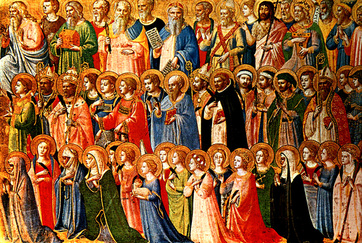 The word ‘saint’ is mentioned many times in the bible. It refers to a follower of Christ (or of God when mentioned in the Old Testament) much as we would use the word ‘Christian’ today. In the early days of the Church, anyone who belonged to the Christian community was called a saint. But as the Romans conquered much of the world, the term saint took on a new meaning. Christians tortured and killed for their faith by the Romans were called martyrs. By this ultimate sacrifice, martyrs gain immediate access to Heaven. Martyrs came to be known as Saints and later, people who modeled heroic virtue and exemplary spiritual lives were also venerated as Saints. A Saint was someone the community felt certain was now in Heaven with God. Their lives were upheld as examples to all of us who long for Heaven. As the years went by the church formalized the process by which someone could be called a Saint. It involved a lengthy examination of his live and proof that God worked a miracle or two through that person. When the church is able to proclaim with authority that this person is now in Heaven with God, they are officially called a Saint and they are available to us for prayers and intersession. So there are two types of saints: the Saints in Heaven who are already with God, and us little saints on earth stumbling toward our eternal glory. Only God can see into a person’s heart and knows who deserves to be honoured as a saint. So the church honours ALL the saints who have ever lived on November 1st – those declared saints by the church and those known only to God, the great Saints in Heaven and us little saints on earth.
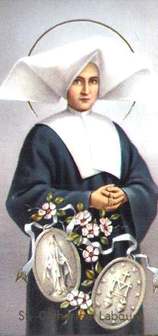 Feast Day – November 25 Originator of the Miraculous Medal At the age of 24, St. Catherine Laboure became a Daughter of Charity of St. Vincent de Paul. One night, when Catherine was still a novice, the Blessed Mother appeared to her in the convent chapel. The blessed Mother showed herself standing on a globe with streams of light coming from her hands. Under the globe were the words, “Oh Mary, conceived without sin, pray for us who turn to you!” Sister Catherine was told that a medal was to be made of this picture of our Lady and that people who wore the medal would receive many graces from Jesus through His Mother’s prayers. Soon, because of all the wonderful graces obtained by those who wore the medal, it was called “Miraculous.” Sacramentals: Another Means of Grace. The Catholic Church teaches that only God can perform a true miracle. But we also know that God can act either directly or through secondary agents, like people. God sometimes even performs miracles through inanimate objects in order to show the intercessory power of a particular saint. A man came back to life when he contacted the bones of the holy prophet Elisha (2 Kings 13:20-21). God performed miraculous cures through Peter’s shadow (Acts 5:15-16) and through handkerchiefs that had touched St. Paul (Acts 19:11-12), showing the great intercessory power of St. Peter and St. Paul. Medals of our Lady and relics of saints have no power to cause miracles in themselves. Rather, God performs miracles through these medals and relics to show the great intercessory power of Mary and the saints. Sacramentals must be treated with respect. For example, the Miraculous Medal should be worn with devotion. We are not obliged to use sacramentals and they are not necessary for salvation but the prayers, pious objects and sacred signs of the Church are aids to salvation. We should appreciate this extra help and use them with faith and not as objects of superstition. We must remember that they are useless of themselves. It is God who gives them their power. WHERE TO LEARN MORE: There are many books and videos available on the saints. Also, there is a lot of information on the Internet, try http://www.marys-touch.com/Saints/medal/medal/htm for a very good story about St. Catherine and the Miraculous Medal.
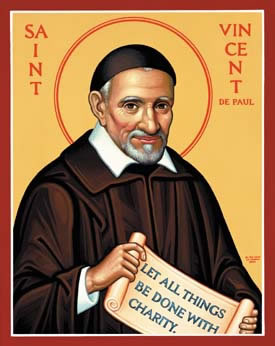 Feast Day – September 27 Patron saint of the charitable organizations St. Vincent de Paul’s Feast Day celebrates the life of St. Vincent de Paul, a 17th century French priest who founded the Daughters of Charity in 1633. Born in Pouy, France (outside of Paris), in 1581, St. Vincent was the third of six children born to a poor country folk couple. He was ordained as a priest at age 19 and earned his Bachelor’s of Theology in 1604. He spent the first years of priesthood living in relative ease in Paris. The year 1617 marked a turning point in St. Vincent’s life. It was then that he decided to dedicate his life to serving the poor. He came to believe that God lived in every person, no matter what their condition in life or where they came from. In July 1617, St. Vincent abandoned his comfortable life as a priest in Paris and became a parish priest dedicated to the poor. St. Vincent saw that the poor needed nursing and social services, often in their own homes. In 1633, he and Louise de Marillac, also an advocate of the poor, taught 12 peasant girls to care for the poor, to read and write, and to lead religious lives. These women were the first Daughters of Charity; a group that would grow to a world-wide network of sisters that today care for millions of poor in every continent in the world. PRAYER: Dear St. Vincent, the mere mention of your name suggests a litany of your virtues: humility, zeal, mercy, self-sacrifice. It also recalls your many foundations; works of mercy, congregations, societies. The church gratefully remembers your promotion of the priesthood. Inspire all charitable workers, especially those who minister to the poor, both the spiritually and materially poor. Amen. WHERE TO LEARN MORE: There are many books and videos available on the saints. Also, there is a lot of information on the Internet, try http://www.catholic-forum.com/saints/saintb03.htm
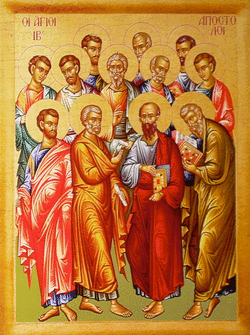 According to the dictionary definition, the words apostle and disciple mean the same thing – “one who is a follower of Christ”. However, the word apostle has come to refer to one of the original 12 followers of Christ. It means ‘one who is sent’. When we think of those Apostles and their relationship with Jesus it is hard not to feel some envy. They were his friends. He talked with them, laughed with them, partied with them. They felt the weight of his affectionate arm around their shoulder. These are the things that we can only dream about as we wait to see Jesus in heaven. Not only do we envy their relationship with Jesus, we may also be inclined to think that it couldn’t really have been that hard for them to live and share their faith, after all, they really KNEW Jesus in the flesh. The truth is that it was very hard for the Apostles. Even though they loved him and called him “Teacher”, they weren’t always convinced that he was the long awaited Messiah. They were often confused and afraid. It was only after the Ascension of Jesus when the Holy Spirit came upon them at Pentecost that they gained the grace and power and wisdom to spread the Good News of the Gospel with authority. While the Apostles experienced Jesus as a Man, we experience him as God, and through the teachings of the Church, we have the full assurance that Jesus truly is God. We have the same Holy Spirit guiding us who led the Apostles but we also have so much more. We have the Church and her sacred teachings, the Bible, the Sacraments, and the promises of Christ. He said, “Very truly, I tell you, the one who believes in me will also do the works that I do and, in fact, will do greater works than these, because I am going to the Father.” John 14:12 We, the Church, are the body of Christ, and Jesus works through us. We can be the presence of God’s love to one another. In this way we become the Hands and Feet of Christ passing his own love on to others. Do not envy the close relationship Jesus had with his Apostles, for Jesus is very much alive today and he longs for a close relationship with you. He has given us all that we need to be Dynamic Disciples. We need only trust and obey.
|
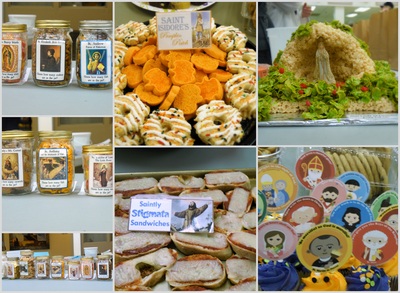
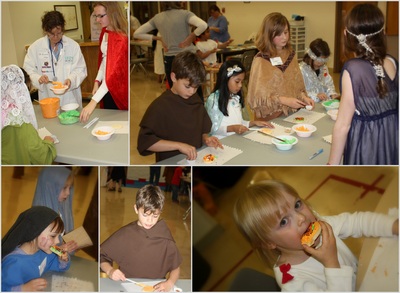
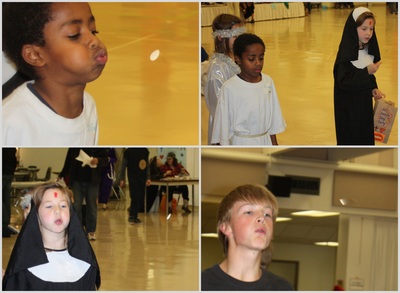
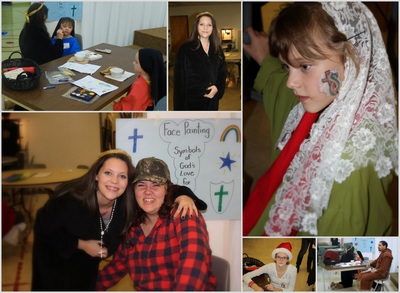
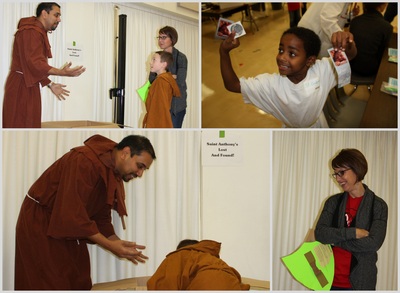
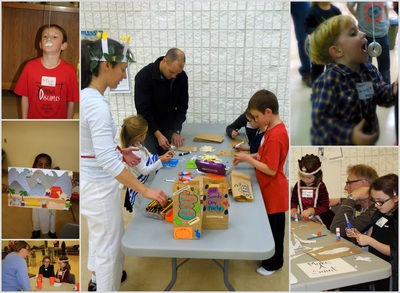
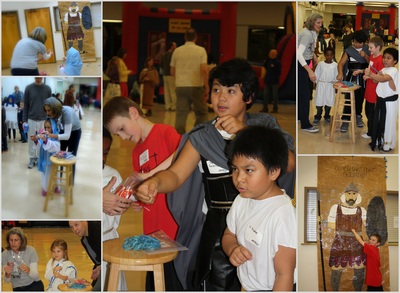
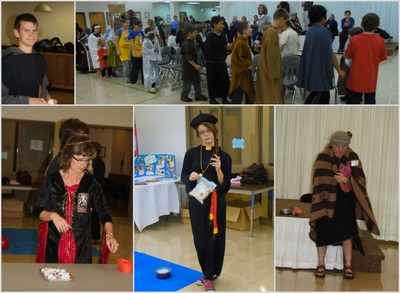
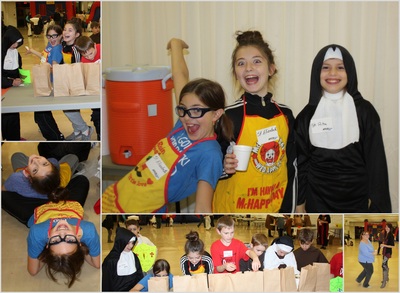


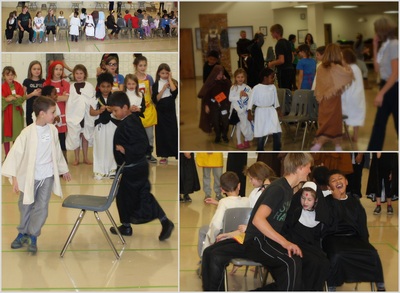

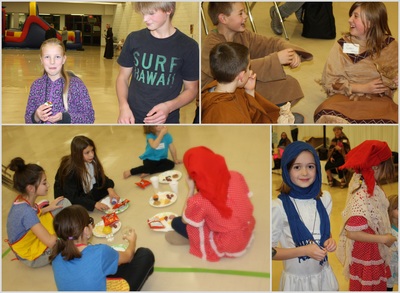



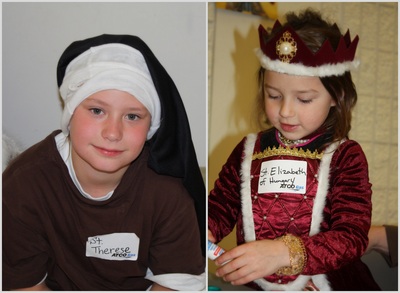


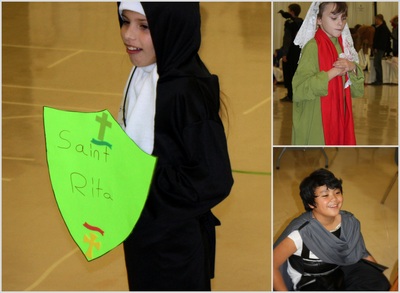
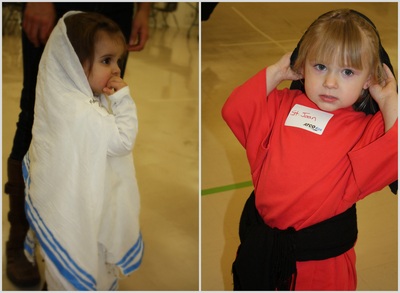
 RSS Feed
RSS Feed
